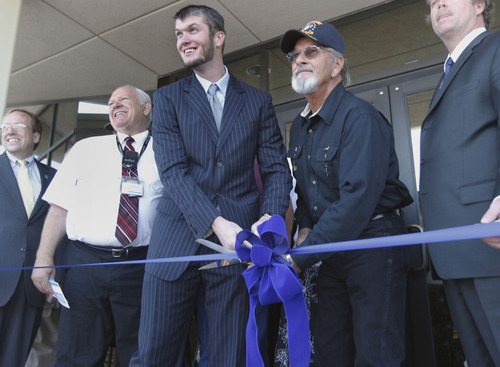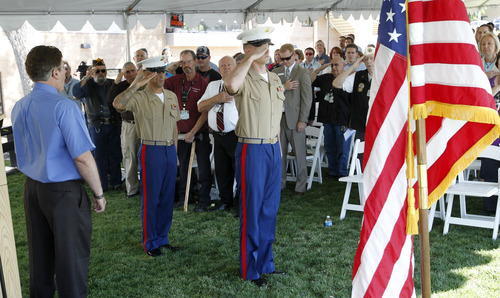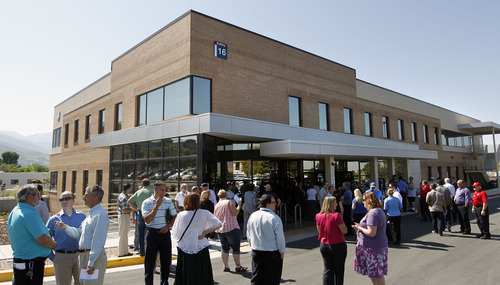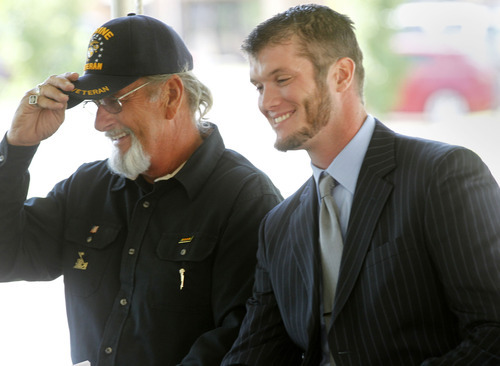This is an archived article that was published on sltrib.com in 2012, and information in the article may be outdated. It is provided only for personal research purposes and may not be reprinted.
Iraq War veteran John Angell offered blunt advice Friday as he helped dedicate a new building for mental health care at the George E. Wahlen Department of Veterans Affairs Medical Center.
"The vets that aren't receiving treatment need to suck it the hell up and just come," said Angell. "We're trained to push past it, so excuses? Who the hell cares? Get your ass over here."
Angell and Vietnam War vet Stu Shipley received standing ovations from a crowd of about 100 at the dedication of a building that serves outpatient vets being treated for post traumatic stress syndrome (PTSD), military sexual trauma, substance abuse, other mental health issues and for vocational rehabilitation.
Each man told how he was reluctant, at first, to turn to the V.A.
Shipley said he found himself in a canyon above Salt Lake City 20 times in the two years before he sought psychiatric care. He had his .44 Magnum revolver and his dog in his lap, and each time considered suicide.
The Marine said he first went to the V.A. for medical care four decades ago but didn't realize he had severe PTSD, which he says contributed to his drug and alcohol abuse, failed marriages and stints in jail. The V.A., he said, "saves lives."
Angell, also a Marine, called the V.A.'s prolonged exposure therapy, in which he was forced to look repeatedly at hard memories, was "brutal but beneficial."
"I'm now happy. I have a positive outlook on life," said Angell, who is studying math at the University of Utah.
The mental health outpatient building was long overdue, said Steve Young, director of the Salt Lake City V.A. Health Care System.
It took a year to build and then sat vacant for nine months because of troubles with the parking lot and getting furniture. Finally, he said, "we were able to stop calling this the world's biggest lawn ornament."
For two decades, mental health services were delivered in modular buildings on the V.A. campus.
The Salt Lake V.A. system is getting five new mental health employees this summer as part of a nationwide effort to better treat veterans with such problems. It is also building more space for veterans who need to be hospitalized for mental health issues. The number of beds in a secure unit will increase by 11 to a total of 32 by next spring. The hospital is also adding 14 intermediate-care beds.









